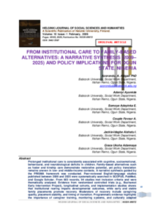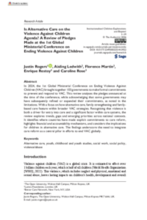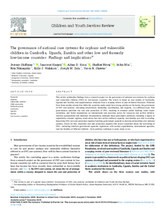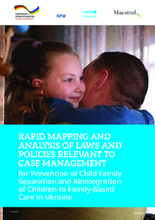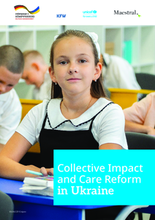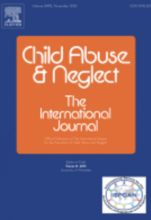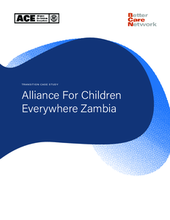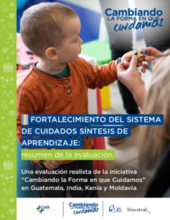Displaying 1 - 10 of 1025
This article reviews global evidence on the impacts of institutional care versus family-based alternatives and examines how these findings inform foster care reform in Ogun State, Nigeria. It synthesizes research from 2009–2025 to identify key developmental outcomes, implementation lessons, and policy priorities for transitioning away from institutional care.
In 2024, the 1st Global Ministerial Conference on Ending Violence Against Children (VAC) brought together 103 governments to make formal commitments to prevent and respond to VAC. This review analyses the pledges announced at the time of the conference, while acknowledging that some governments may have subsequently refined or expanded their commitments, as noted in the limitations.
This article examines how national care systems for orphans and vulnerable children in Cambodia, Uganda, and Zambia are governed, drawing on case studies and a review of existing research. It highlights the gap between strong policy commitments and weak on-the-ground implementation, pointing to historical, political, and capacity-related factors that hinder effective care and protection.
The paper provides an overview of Ukraine’s legal and policy framework related to child protection and care reform. The document reviews key national laws, strategies and regulations to assess their alignment with international child rights standards and the objectives of the reform to ensure that every child grows up in a family environment.
This paper introduces the Collective Impact (CI) approach as a structured, equity-focused framework for advancing complex care reforms involving multiple actors. It explains how coordinated action across government, civil society, communities and non-traditional partners can move efforts from fragmented or isolated interventions toward shared goals, common metrics and sustained systems-level change.
This webinar, held December 16, 2025, spotlighted the powerful intersection between two consequential global advocacy movements in human rights: the reform of alternative care systems for children and the advancement of children’s access t
The multiple and extensive transformations that have occurred in Eastern Europe since the 1990s did not bypass care, bringing diverse care regimes. This chapter, in the Research Handbook on Social Care Policy, aims to explore the main trends in the development of care policies in Croatia (a post-Yugoslav country) and the Czech Republic (a Visegrád country).
This review compares child protection systems in Indonesia and Ethiopia using UNICEF’s Child Protection System Strengthening framework. Both countries have established solid legal frameworks and coordination mechanisms, but progress toward system maturity remains slow due to gaps in enforcement, accountability, and support services, with Indonesia showing stronger development in workforce and data systems.
ACE Zambia, founded in 1998 as a faith-based organization supporting orphans and vulnerable children, gradually shifted from operating multiple residential care facilities toward strengthening family- and community-based services after recognizing the harms of long-term institutionalization. Between 2014 and 2025, the organization closed all residential homes, expanded preventative and family-focused programs, and ultimately increased its reach by supporting far more children in safe family settings using the same level of resources.
Cambiar la Forma en que Cuidamos (CTWWC, por sus siglas en inglés) es una iniciativa global que promueve un cuidado familiar seguro y afectuoso para los niños.

